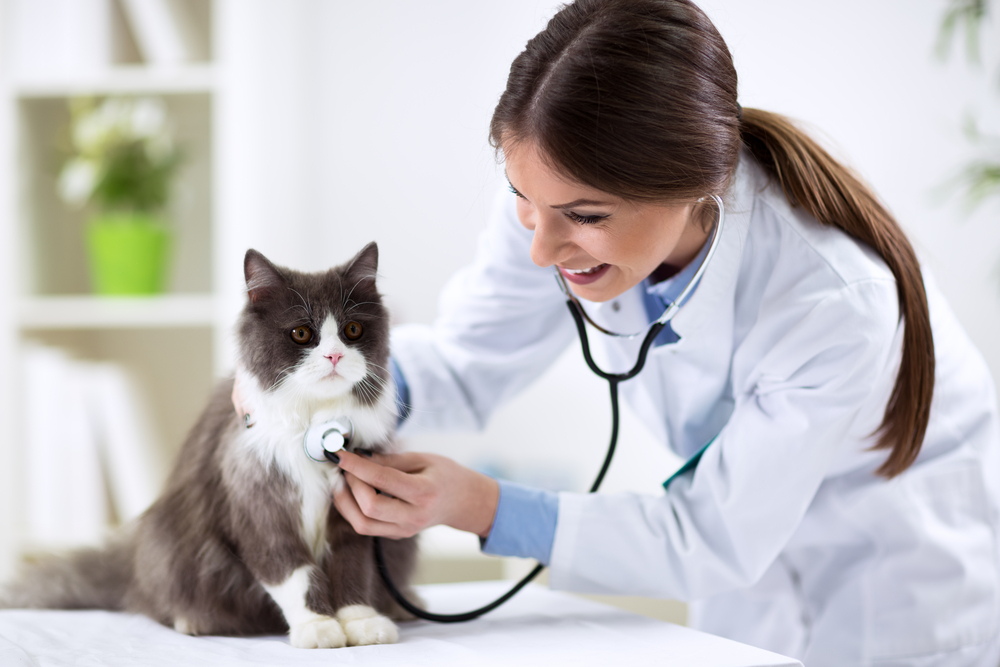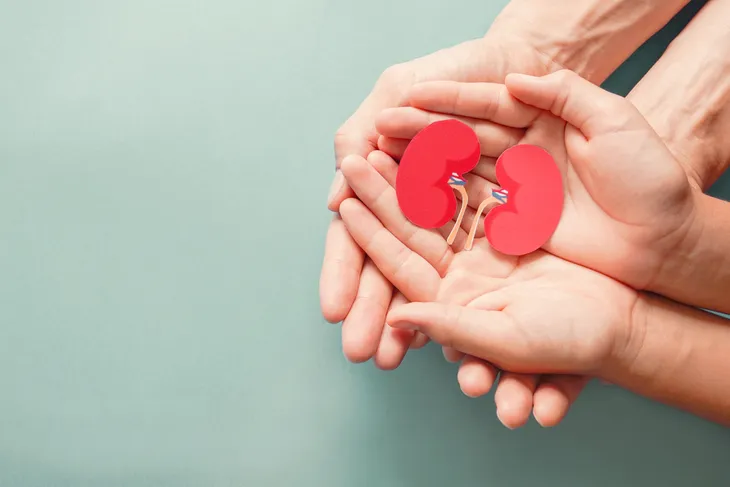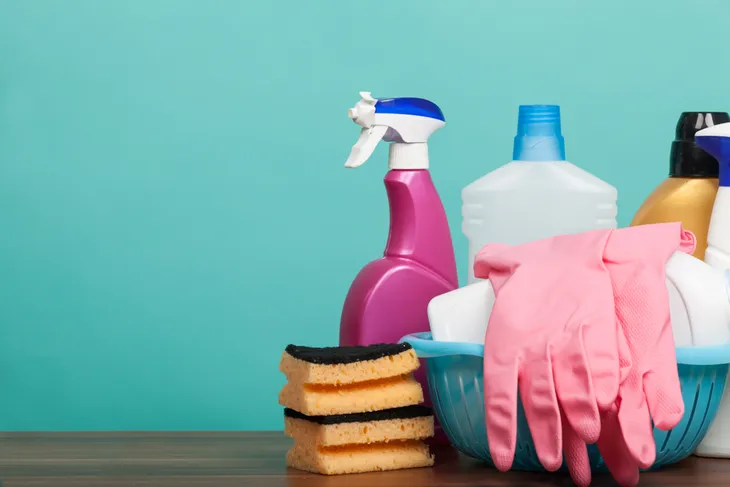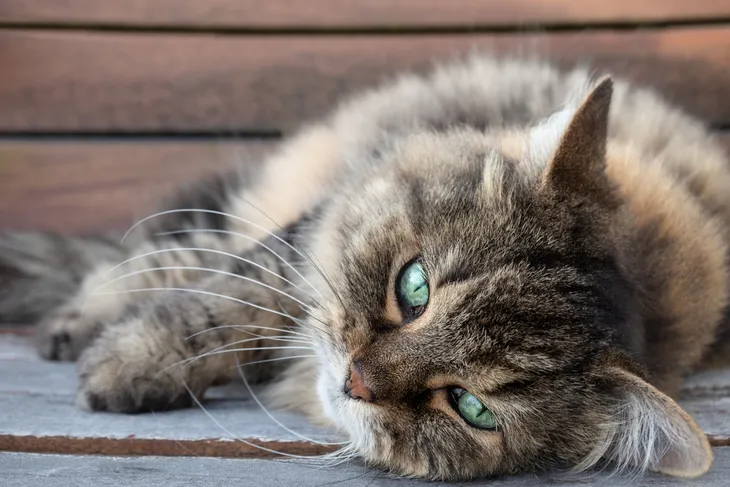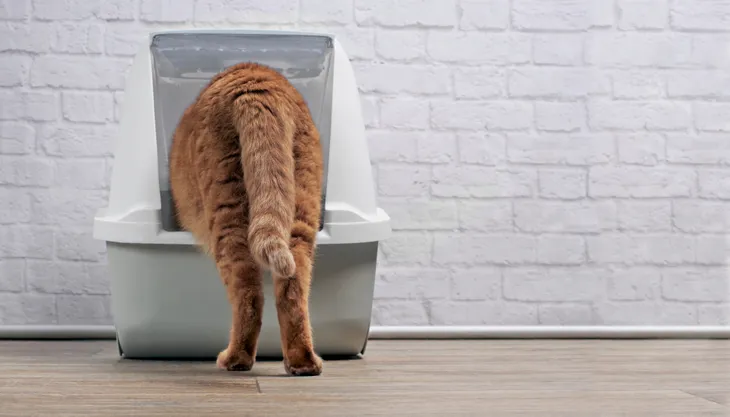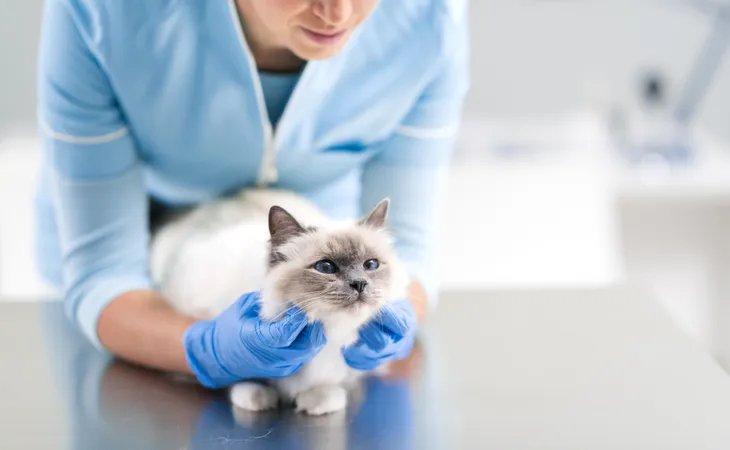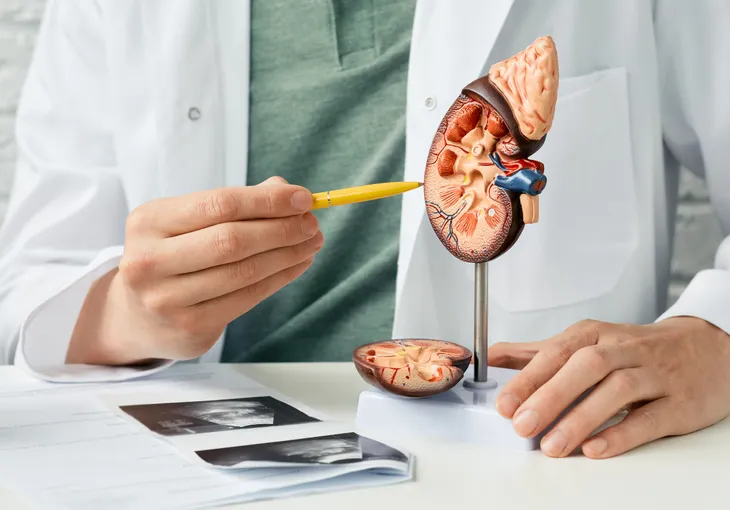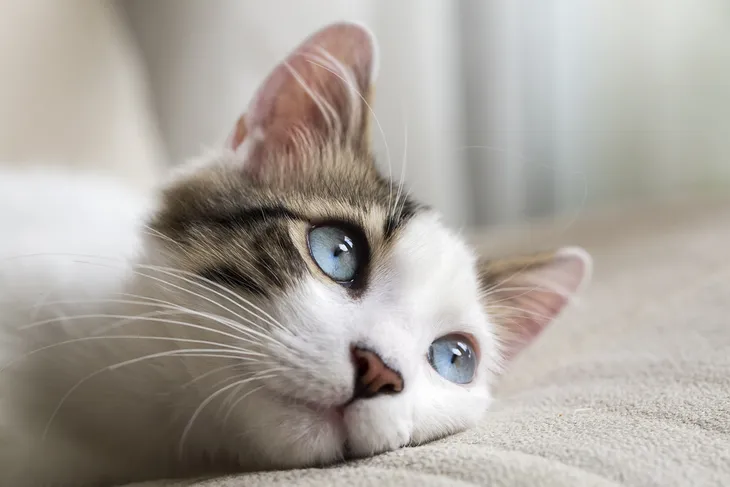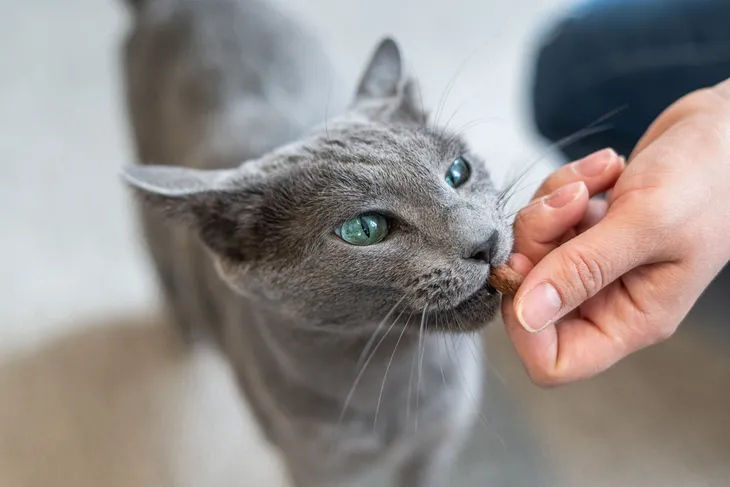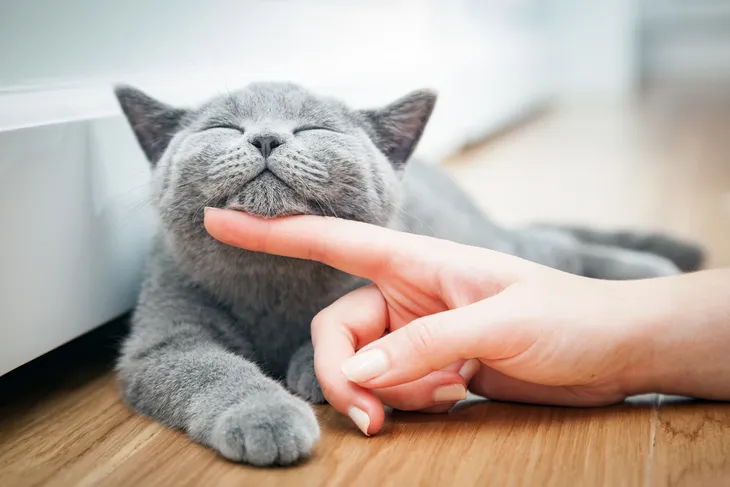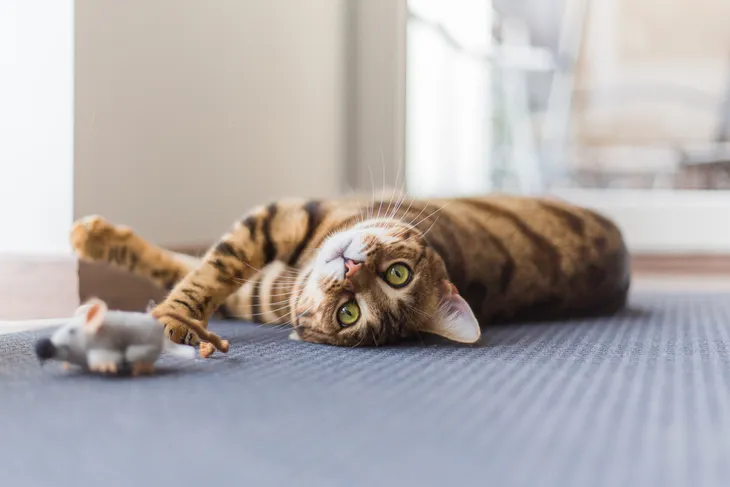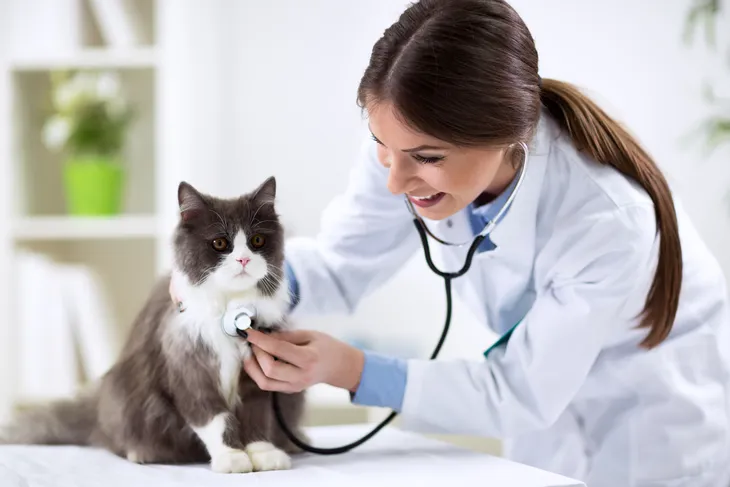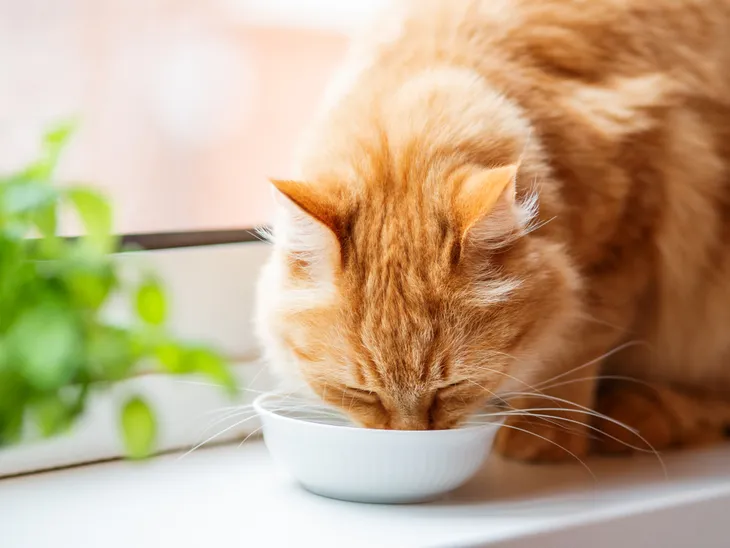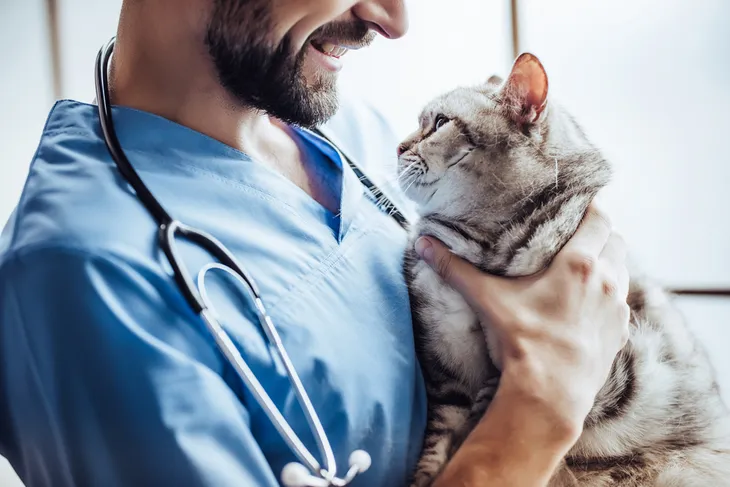- There are two types of kidney failure in cats, acute and chronic. Acute failure happens suddenly, while chronic failure develops slowly.
- Untreated kidney disease can lead to serious health complications for your cat. By getting informed you can get your cat the help it needs as soon as possible.
- There is no cure for chronic kidney disease but with the right treatment plan, CKD will progress slowly and it’s possible for your cat to live a happy and active life for several years.
The kidneys are vital organs that help keep your cat healthy. They mainly work to remove waste products from their blood, help manage blood pressure, make hormones, and more. But when the kidneys aren’t functioning properly, it can lead to serious health complications.
When left untreated, kidney disease can lead to serious health consequences for your cat. So, it’s important to get informed. Here’s what you need to know about kidney disease in cats including the common signs to watch out for, the causes, and treatment options available.
Types of Kidney Failure in Cats
Fetch by WebMD says it’s common for a cat’s kidneys to begin failing with age. That said, senior cats aren’t the only ones at risk — kittens can be born with kidney disease too! Nonetheless, by diagnosing the disease early, you can help get your cat the treatment it needs to improve its quality of life and boost its life expectancy.
The source also notes that there are two types of kidney failure in cats: acute renal failure, and chronic kidney failure. Acute kidney failure happens suddenly, usually within days or weeks, whereas chronic kidney failure develops slowly, over time from chronic kidney disease.
What Causes Acute Renal Failure in Cats?
The root cause of acute kidney failure is usually trauma or poisoning. Be on the lookout for common household products that could pose a threat to your kitty. Things like cleaning products with harsh chemicals, pesticides, and antifreeze should be stored away and out of reach of your cat.
Other possible causes of acute renal failure include trauma from an accident, dehydration, rapid blood loss, a kidney infection, urinary tract obstruction, or heart failure with low blood pressure. Fetch by WebMD says that if diagnosed quickly, acute renal failure “can often be reversed.”
What Causes Chronic Kidney Failure in Cats?
Chronic kidney failure can be more complicated and harder to treat because it develops over a long period of time, months and sometimes even years. Chronic kidney failure is more common in middle-aged and senior cats. Fetch by WebMD says you should pay close attention to your cat’s health when they’re 7-years old or older.
The root cause of chronic kidney disease isn’t always obvious, however, experts say it may be caused by kidney infections or blockages that slowly cause the kidneys to deteriorate over time. The Pet Health Network says other conditions may play a role in chronic kidney disease development, such as cancer. Advanced dental disease, thyroid problems, and high blood pressure may also play a role. Finally, chronic kidney disease may be hereditary, especially in fancy cat breeds such as Abyssinian and Persian cats.
Signs of Kidney Failure
Whether your cat is young or old, it’s important to be on the lookout for signs of kidney failure. The symptoms your cat develops can progress quickly or slowly, depending on the type of kidney failure they have. Nonetheless, be on the lookout for:
- Increased thirst
- Increased urination
- Cloudy or bloody urine
- Loss of appetite
- Sudden weight loss
- Vomiting
- Diarrhea
- Constipation
- Dry coat
- Weakness or lethargy
- Withdrawal from normal activities
- A brown colored tongue
- Foul-smelling breath (especially breath that smells like ammonia)
- Oral ulcers
When to See a Veterinarian
If your cat is showing signs of kidney failure, it’s vital that you take them to your veterinarian for a diagnosis and to start a treatment plan as soon as possible. Your vet will start with a physical exam. Inform them of all the symptoms your cat is experiencing and whether or not you think they ingested something poisonous.
Next, Wag! says your vet will take a urinalysis which looks for protein in the urine. High levels of protein can show that the kidneys aren’t functioning properly. Furthermore, the source says your vet will take a urine-specific gravity (USG) to look for waste products in their blood. The source explains, “a cat who has kidney failure will have urine with a gravity that is much like distilled water.” And high numbers of waste products in the blood can also indicate kidney failure.
The Stages of Chronic Kidney Disease in Cats
After diagnosing chronic kidney disease, your vet will determine the stage of the disease. The stages of chronic kidney disease are:
- Stage 1: nonazotemic, which means there is abnormal renal palpation and a trending increase in creatinine concentrations.
- Stage 2: mild azotemia, which means that clinical signs of CKD are absent or mildly present.
- Stage 3: moderate azotemia, which means clinical signs of CKD are present.
- Stage 4: severe azotemia, which means clinical signs of CKD are present and likely more severe.
The progression of the disease can vary for each cat. It can take years to progress from stage 1 to stage 2 for some cats, while others may progress more quickly. It’s important for your vet to determine the stage of the disease in order to develop the best treatment plan for your cat.
Acute Kidney Failure Treatment
First, it’s important to know that acute kidney failure and chronic kidney disease are treated differently. The goal of treatment for acute kidney failure is to focus on “removing the circulating toxins as quickly as possible and restoring electrolyte balance,” explains the VCA Animal Hospital.
Treatment may include fluid therapy for 1- to 4-days. If your cat was exposed to toxins your vet may need to empty their stomach immediately. Then, the vet will administer activated charcoal to “prevent further absorption of toxins,” explains the source. Your vet may also recommend nutritional support to help control vomiting. In some cases, surgery may be necessary.
Ultimately, your vet will come up with an aggressive treatment plan to give your cat the best chance of survival.
Treating Chronic Kidney Disease in Cats
The VCA Animal Hospital says the treatment for chronic kidney disease will depend on your cat’s blood test results. Ultimately the goal is to resolve specific abnormalities. That said, the source notes most cats can manage the disease with diet adjustments in combination with one or two other treatments. It’s important that you work with your vet and follow their guidance and treatment plan.
Treatment for chronic kidney disease in cats might include:
- A special diet that is low in protein and phosphorus may help lower levels of waste products in the bloodstream
- Supplements such as phosphate binders, potassium, vitamins B and C
- Antibiotics
- Anti-vomiting medication to help reduce nausea and improve appetite
- Blood pressure medication
- Treatment of anemia
The Outlook
Unfortunately, there is no cure for chronic kidney disease. VCA Animal Hospital says, once the kidneys are damaged, it’s unlikely they can recover. That said, with the right treatment plan, chronic kidney disease can progress slowly. It’s possible your cat will live a happy and active life for several years after the initial diagnosis.
In contrast, cats that require dialysis or a transplant will require consistent follow-up appointments with their vet to ensure their kidneys are functioning properly. And cats who are unable to have dialysis or a transplant will likely have a poor prognosis.
Can Kidney Disease in Cats be Prevented?
To avoid acute kidney failure, keep your cat safe by storing toxic substances away and out of reach of your cat. Chronic kidney disease, on the other hand, can’t always be prevented. That said, there are steps you can take to ensure your cat stays healthy and reduce your cat’s risk of CKD.
Prevention may include regular checkups with your vet, dietary changes, encouraging activity, and watching your cat’s weight. Let’s take a closer look at these steps you can take next.
Prevention: Regular Checkups at the Vet
Regular checkups by your veterinarian are important. It’s an opportunity for your vet to examine your cat and catch any signs of illness early. It’s also a great opportunity for you to voice any concerns or ask questions you may have about your cat’s health.
Routine exams can also help catch chronic kidney disease early. Since CKD is common in older cats, Today’s Veterinary Practice (TVP) says annual screening of healthy cats should start when they’re 5- to 6-years old. “This screening enables you to establish a baseline against which changes can be monitored over time,” explains the source. CKD screening may include a physical exam, blood test, and urinalysis.
Prevention: Encourage Fluids
Hydration is just as important for you as it is for your cat. The Blue Pearl Vet says if your cat drinks plenty of water, “it’s more likely that his or her kidneys will stay healthy for years to come.” This is why it’s important to encourage fluids. Always keep their water dish filled at all times.
If your cat doesn’t drink lots of water from their dish, you can encourage more fluids by feeding your cat wet food. While it won’t replace their water intake entirely, it is an easy and effective way to get more fluids into your cat’s system.
Prevention: Watch Their Weight
It’s also important to watch your cat’s weight. Obesity can lead to diabetes which has “a strong tendency to lead to kidney failure,” says the Blue Pearl Vet.
To find the ideal weight for your cat, talk to your vet. Your family vet can provide advice on what a healthy weight is for your cat as well as steps you can take to help ensure your cat’s weight is managed. For example, they may recommend a special diet and recommend that your cat gets more playtime and exercise.
